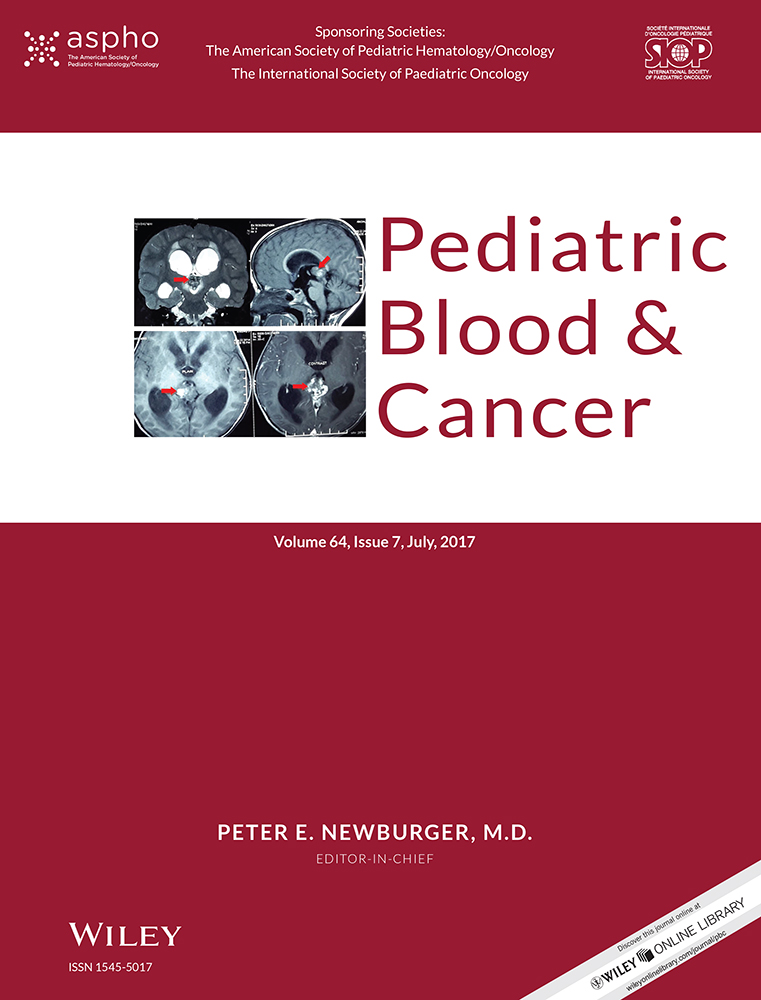Impact of fusion gene status versus histology on risk-stratification for rhabdomyosarcoma: Retrospective analyses of patients on UK trials
Joanna Selfe and David Olmos contributed equally to this work.
Grant sponsor: Cancer Research UK; Grant number: C5066/A1099; Grant sponsor: Chris Lucas Trust; Grant sponsor: NHS.
Abstract
Background
Long-term toxicities from current treatments are a major issue in paediatric cancer. Previous studies, including our own, have shown prognostic value for the presence of PAX3/7-FOXO1 fusion genes in rhabdomyosarcoma (RMS). It is proposed to introduce PAX3/7-FOXO1 positivity as a component of risk stratification, rather than alveolar histology, in future clinical trials.
Procedure
To assess the potential impact of this reclassification, we have determined the changes to risk category assignment of 210 histologically reviewed patients treated in the UK from previous malignant mesenchymal tumour clinical trials for non-metastatic RMS based on identification of PAX3/7-FOXO1 by fluorescence in situ hybridisation and/or reverse transcription PCR.
Results
Using fusion gene positivity in the current risk stratification would reassign 7% of patients to different European Paediatric Soft Tissue Sarcoma Study Group (EpSSG) risk groups. The next European trial would have 80% power to detect differences in event-free survival of 15% over 10 years and 20% over 5 years in reassigned patients. This would decrease treatment for over a quarter of patients with alveolar histology tumours that lack PAX3/7-FOXO1.
Conclusions
Fusion gene status used in stratification may result in significant numbers of patients benefitting from lower treatment-associated toxicity. Prospective testing to show this reassignment maintains current survival rates is now required and is shown to be feasible based on estimated recruitment to a future EpSSG trial. Together with developing novel therapeutic strategies for patients identified as higher risk, this may ultimately improve the outcome and quality of life for patients with RMS.




